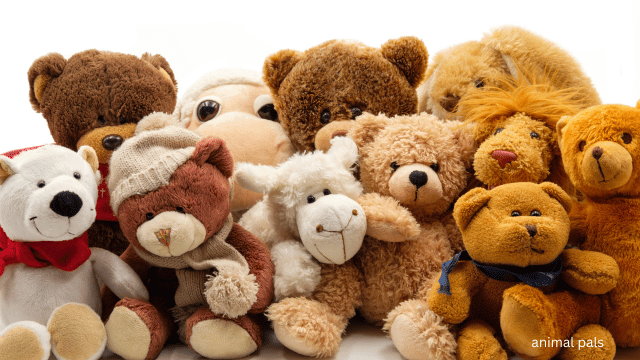In the exciting journey of childhood, playtime holds a special place. It’s not just about fun; it’s a crucial part of a child’s development. And when it comes to playtime, including animal pals can make it even more enriching! Let’s explore how playing with animal pals aids in the development of early learning skills and fosters bonding.
Learning Through Imagination
Playing with animal toys or pretending to be animals encourages imaginative play. Children create scenarios, assign roles, and engage in make-believe situations. This imaginative play enhances creativity and storytelling skills. It allows them to explore different perspectives and understand the world around them in a fun and exciting way.
Language Development
Interacting with animal pals provides ample opportunities for language development. Children naturally engage in conversations, narrate stories, and mimic animal sounds. These interactions improve vocabulary, sentence structure, and communication skills. Additionally, reading books about animals together enhances literacy skills and fosters a love for reading.
Cognitive Skills
Playtime with animal pals stimulates cognitive development. Sorting, categorizing, and matching animal figures or puzzles improve problem-solving abilities and logical thinking. Children learn about colors, shapes, sizes, and patterns while playing with diverse animal toys. These activities also enhance spatial awareness and fine motor skills.
Emotional Development
Bonding with animal pals promotes emotional development. Children develop empathy, compassion, and nurturing skills as they care for their animal toys. They learn to identify and express their emotions through role-playing scenarios. This emotional intelligence lays a strong foundation for healthy social relationships and self-regulation.
Bonding and Social Skills
Playing with animal pals provides opportunities for bonding with caregivers and peers. It encourages cooperative play, turn-taking, and sharing. Children learn to negotiate, collaborate, and resolve conflicts in a supportive environment. These social interactions foster a sense of belonging and build essential social skills necessary for navigating various social settings.
Understanding Nature and Respect for Animals
Interacting with animal toys or observing real animals fosters an appreciation for nature and wildlife. Children learn about different species, habitats, and behaviors of animals. They develop respect for living creatures and understand the importance of conservation and animal welfare.
Incorporating animal pals into playtime not only makes it enjoyable but also promotes holistic development. Whether it’s through storytelling, imaginative play, or engaging in educational activities, the presence of animal pals enriches the learning experience for children. So, let’s encourage playful encounters with our animal friends and witness the magic of learning and bonding unfold!










